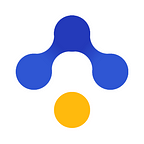I get asked a lot —How did you become a trader with no background in finance? Where did you learn how to trade?
I didn’t. I learnt math. And statistics. And programming.
Technology has influenced everything it has touched so far including the landscape of finance and trading. Its influence and application has led to the springing up of a new form of trading known as quantitative trading. I’m sure most of us are familiar with the basic definition, if not at least functioning.
Quantitative trading is where trading opportunities are identified using elements of quantitative aptitude such as mathematics, statistics, coding, and historical data. The many forms of quantitative trading, including statistical arbitrage, algorithmic trading, and high-frequency trading, make use of technology, massive databases, mathematics and statistics to come up with effective trading solutions and optimizations.
A quant — quantitative analyst or researcher- picks a trading strategy and formulates a mathematical model of it. The quant then codes a computer program that simulates the model backed by historical data. When the model is backtested (testing the trading model on appropriate historical data), results are recorded depending on how effective the program will function when it involves actual capital. If the backtesting provides favorable results in the simulation, it’s further optimized for better results and implemented in real world trading involving real money. If not, the trading strategy is rejected.
Who is it for?
Though quantitative trading involves a lot of complex subjects, it’s not limited to a class of professionals. The first fact you need to remember is that you don’t have to be a math or science prodigy for this. Quantitative trading is open to anyone who has a decent understanding of mathematics, and statistics. If you have an interest in financial markets and enough experience to allow you to translate your ideas into code, you’re already ready to make a foray into this highly rewarding industry. The rest is all about skills that you can learn and develop as you gain experience. The faster you grasp, the sooner you make progress. It is important to remember , though progress and growth is promising, it does not happen overnight.
What you need to become a Quant?
A good understanding of mathematics foes a long way in becoming successful in this industry. When I say mathematics, I mean an understanding of probability, statistics, and linear algebra. A quant uses these in the formulation of trading strategies and models and these constitute the first set of requirements. As far as the other set is concerned, it is highly beneficial if you know how to code. Coding helps you develop custom trading simulators or infrastructure so you don’t have to rely on anyone else to get it developed. So, if you’re not sure of your coding skill, you can brush it up a bit or learn it from scratch if you’ve zero exposure to coding. Finally, if you have experience as a data scientist, you are already there! All you need to do is apply to skills to financial data sets.
Becoming a Quantitative Trader
If you’re serious on getting into quantitative trading, you can follow the simple route to getting there:
· Start by brushing up on math and statistics. These are the foundation of quantitative trading. Make it your strength.
· Learn statistical programming tools like Python or R (this will probably take a little time but is inevitable).
· Learn Coding. You will need this to develop trading strategies.
· Finally, if you are ready to take your knowledge forward, familiarize yourself with simple trading strategies and start optimizing them on your own.
If you feel alarmed by this, stop your thoughts right there. I’m sure that if you’re interested about quantitative trading, you’ll have mathematics and statistics as your strength. If coding is where you lag, go out there and learn. Or, if you’re hesitant because of the fact that you’re not from a finance background, do not. You can be a successful trader with just the basics, too. Good luck!
Follow us to know more. If you’re ready to be a quant, take our quant challenge!
